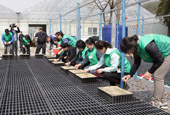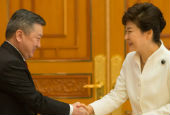The Rural Development Administration (RDA) and the Korea Forest Service have embarked on a new undertaking in international cooperation related to agriculture and forest conservation, as they celebrated the opening of the KOPIA (Korea Project on International Agriculture) Center in Ulaanbaatar, Mongolia, on July 1. Its aim is to promote the exchange of farming technology. The KOPIA Center's opening is a result of a farming technology cooperation agreement, which was signed between Korea and Mongolia in December 2013. The Korean government is going to share with Mongolia its experience in growing an amount of staple grains sufficient for its own consumption and in cultivating fruits and vegetables the year round.
The RDA intends to send agriculture specialists to Mongolia to conduct joint research. This year, the administration will also start a range of projects including multiplying high-grade wheat seeds and forage crop seeds, and improving the quality of lamb produce and wool by providing sheep better nutrition. These projects are expected to raise the degree of self-sufficiency in food production.
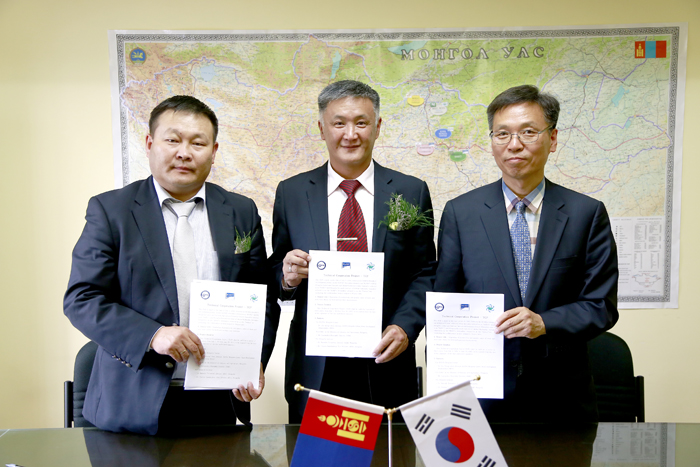
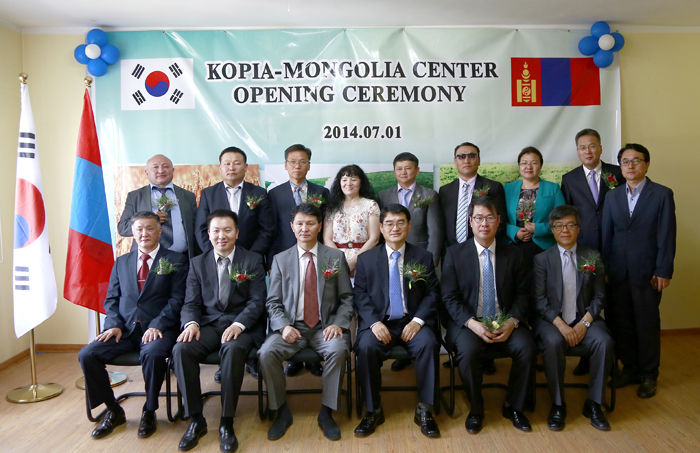
"The KOPIA Center in Mongolia and the existing centers in seven Asian countries will help solidify cooperation between Korea and other nations," said RDA Administrator Lee Yang-ho.
Earlier, June 26, the Korea Forest Service and the Tunisian Ministry of Agriculture held a forest conservation cooperation meeting in Tunis, Tunisia. Tunisia is the first African nation to establish a cooperative relationship in forest conservation with Korea.
This was the second meeting since the two signed a memorandum of understanding for forest conservation cooperation in 2010. The two sides discussed the finer details of their cooperation including Tunisian plant research, forest rebuilding on dry lands and a cork oak tree forest restoration pilot project.
The Tunisian Ministry of Agriculture took the Korea Forest Service delegation to dry lands in the Kairouan area and stressed the need to rebuild forests to prevent desertification, upgrade the local economy, improve the lives of locals and preserve the ecosystem. The Korea Forest Service will help restore depleted lands in Africa in the future, based on the forest landscape restoration agreement signed with the U.N. Food and Agriculture Organization (FAO) in Rome on June 23.
"Korea's forest rebuilding experience and technology will be very useful in helping restore depleted lands in Tunisia," said a Korea Forest Service official. "I hope the two nations will further strengthen their cooperation in forestry and produce various tangible results."
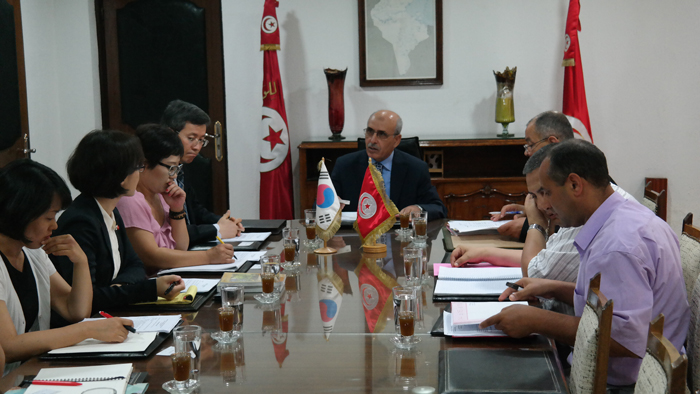
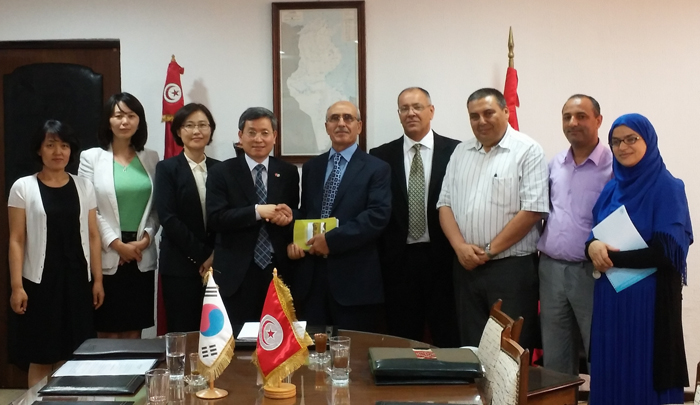
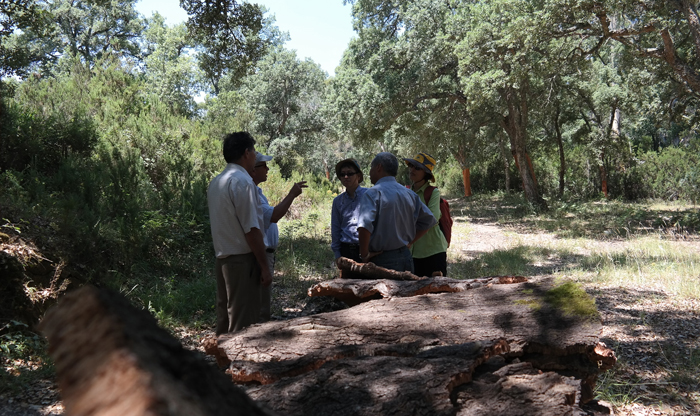
By Limb Jae-un
Korea.net Staff Writer
jun2@korea.kr

The RDA intends to send agriculture specialists to Mongolia to conduct joint research. This year, the administration will also start a range of projects including multiplying high-grade wheat seeds and forage crop seeds, and improving the quality of lamb produce and wool by providing sheep better nutrition. These projects are expected to raise the degree of self-sufficiency in food production.


The Rural Development Administration opens the KOPIA Center in Ulaanbaatar, Mongolia, on July 1, to promote farming technology exchange. (photos courtesy of the RDA)
"The KOPIA Center in Mongolia and the existing centers in seven Asian countries will help solidify cooperation between Korea and other nations," said RDA Administrator Lee Yang-ho.
Earlier, June 26, the Korea Forest Service and the Tunisian Ministry of Agriculture held a forest conservation cooperation meeting in Tunis, Tunisia. Tunisia is the first African nation to establish a cooperative relationship in forest conservation with Korea.
This was the second meeting since the two signed a memorandum of understanding for forest conservation cooperation in 2010. The two sides discussed the finer details of their cooperation including Tunisian plant research, forest rebuilding on dry lands and a cork oak tree forest restoration pilot project.
The Tunisian Ministry of Agriculture took the Korea Forest Service delegation to dry lands in the Kairouan area and stressed the need to rebuild forests to prevent desertification, upgrade the local economy, improve the lives of locals and preserve the ecosystem. The Korea Forest Service will help restore depleted lands in Africa in the future, based on the forest landscape restoration agreement signed with the U.N. Food and Agriculture Organization (FAO) in Rome on June 23.
"Korea's forest rebuilding experience and technology will be very useful in helping restore depleted lands in Tunisia," said a Korea Forest Service official. "I hope the two nations will further strengthen their cooperation in forestry and produce various tangible results."


The Korea Forest Service delegation meets Vice Agriculture Minister Abdallah Cherid (middle) to discuss forestry cooperation in Tunis,Tunisia on June 26. (photos courtesy of the Korea Forest Service)

The Korea Forest Service delegation visits a cork oak tree forest in Tunisia. (photo courtesy of the Korea Forest Service)
By Limb Jae-un
Korea.net Staff Writer
jun2@korea.kr

